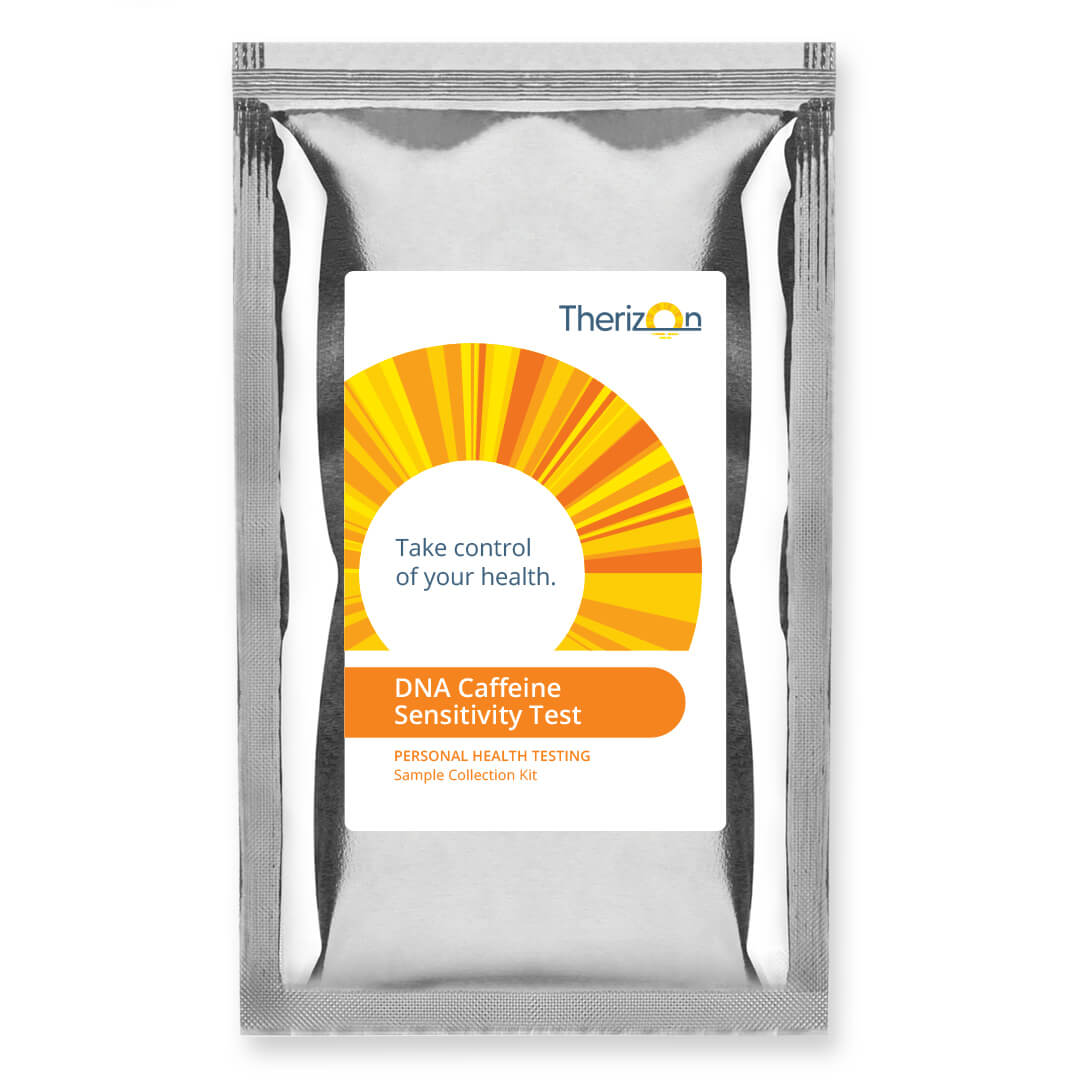Caffeine Sensitivity DNA Test
Ever wonder if you need to cut back your caffeine intake? Discover whether you are a fast or slow caffeine metabolizer with the DNA Caffeine Sensitivity Test.
- Determine your rate of caffeine metabolism
- See if caffeine is increasing your chance of a heart attack
- Find out if caffeine increases your blood pressure
- Painless buccal (mouth) swab sample collection
- All tests are run 2x for absolute accuracy
- Quickly collect samples in the privacy of your own home
- 24/7 online test status check
- No age limit
- State-of-the-art accredited testing laboratory
$149.00
Detailed Description
What is your caffeine sensitivity?
Do you routinely drink more than 3 cups of coffee per day?
Ever wondered whether this is harming your health?
If you have a slow rate of caffeine metabolism, coffee may be doing a lot more damage than just insomnia or heart flutters. Slow caffeine metabolizers take longer to clear caffeine from their body, and the longer caffeine stays in circulation, the higher the risk of a heart attack and high blood pressure (hypertension).
More than 3 cups of coffee per day is associated with the following risks for slow metabolizers:
- 2- to 4-fold increased risk of a heart attack
- 3-fold increased risk of hypertension
Take this simple genetic analysis to determine whether you have caffeine sensitivity and see if caffeine is significantly increasing your risk of hypertension and a devastating heart attack.
The Genetics
Individuals who have the “slow” genetic variant are at risk
Individuals who have inherited the “slow” genetic variant take longer to clear caffeine from their body. The longer that caffeine stays in circulation, the higher the risk of heart problems and hypertension. If an individual with slow caffeine metabolism consumes more than three cups of coffee per day, they have 2X to 4X increased risk of a heart attack and a 3X increased risk of hypertension. Reducing caffeine consumption is recommended for individuals with slow caffeine metabolism.

Caffeine binds to cellular receptors to increase nerve cell activity and stimulates the pituitary gland to release hormones and the adrenal glands to produce adrenaline. This adrenaline increases alertness, heart rate and blood pressure, and the liver releases more sugar into the bloodstream for extra energy.
The consumption of caffeine also increases dopamine levels. Dopamine is the “feel good” neurotransmitter that activates pleasure centres in certain parts of the brain. This increased dopamine is likely to contribute to caffeine addiction, in a similar way to the addictive effects of other drugs such as cocaine.
The CYP1A2 enzyme is responsible for the breakdown of 95% of the caffeine in the body. There are two common genetic variants of this enzyme – a “fast” metabolizer genetic variant and a “slow” metabolizer genetic variant. The “slow” genetic variant is associated with caffeine sensitivity due to lower levels of the CYP1A2 enzyme and a slower rate of caffeine metabolism.
Individuals who have inherited the “slow” genetic variant take longer to clear caffeine from their body. The longer that caffeine stays in circulation, the higher the risk of heart problems and hypertension. If an individual with slow caffeine metabolism consumes more than three cups of coffee per day, they have 2X to 4X increased risk of a heart attack and a 3X increased risk of hypertension. Reducing caffeine consumption is recommended for individuals with slow caffeine metabolism.
How it works
Step 1: Order test kit online
Step 2: Collect DNA sample using a painless mouth swab, and mail to the lab in the provided return envelope
Step 3: Receive your results online
